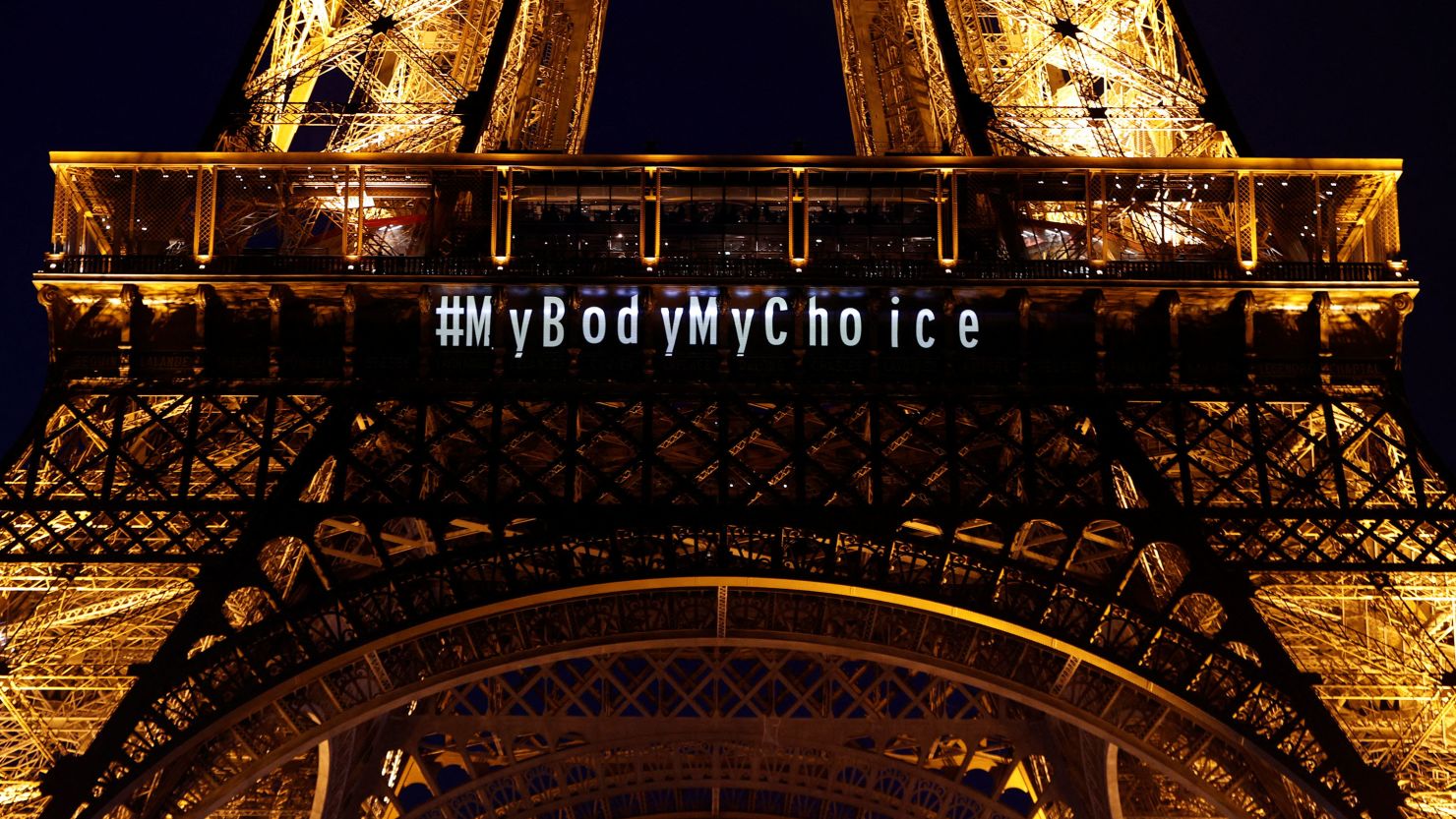Editor’s Note: Euny Hong is a journalist and author living in Paris. She is the author of three books, including “The Birth of Korean Cool.” The views expressed here are her own. Read more opinion on CNN.
America still has tremendous influence globally — though not necessarily in the way it wants. Until not long ago, plenty of places in the world wanted to model themselves after America. But after the US Supreme Court overturned Roe v. Wade almost two years ago, America has, for some nations, become a model … of what not to do.
As one French senator, Laurence Rossignol told Le Monde, the Roe v. Wade decision was “an electric shock.” Rossignol, who is also vice president of the women’s rights delegation of the senate, added, “From then on, the fight for the constitutionalization of abortion was no longer a matter for underground militant feminist groups.”
Yesterday, by pure coincidence, I had a gynecological appointment in Paris (where I live much of the time), just as French legislators were in the process of making France the first country in the world to include abortion rights in their constitution, with a vote of 780–72 in favor.
Given the doctor’s profession, I assumed she’d have nothing else on her mind all day but the vote. I asked her excitedly in French, “What do you think about the abortion rights thing?”
“C’est fou, hein?” she said. (It’s crazy, yeah?) It sure is, I said. But it turned out we were not talking about the same thing. At all. She continued, “Trump, he wants to reverse abortion rights. Unbelievable.”
“Oh!” I said, “I meant about how France is writing abortion rights into the Constitution.”
“Oh that?” she said, less excitedly. “To me, that’s just normal. This is just how it should be. I thought you were talking about America.” She shook her head. “When I was young, it was my dream to immigrate to America. Now? Not so much.”
If that conversation isn’t an indication of how tarnished America’s image has become overseas, I don’t know what is.
From its inception, the US Constitution was the admiration of the world. The French statesman Alexis De Tocqueville extolled it in his seminal 1835 and 1840 tomes, “Democracy in America.” Countries as far-flung as post-Spanish-American War Spain, pre-Communist China and some post-colonial African republics modeled their governments at least partly after the US Constitution.
And it wasn’t that one document that was an object of wonder. For much of the 20th century, after America “saved” the world from fascism and communism, the nation became the gold standard for what an enlightened modern democracy should be. It was envied and emulated not just for its pop music and cigarettes and inimitable coolness, but also its political openness and progressiveness.
When Barack Obama was elected US president in 2008, my French friends and colleagues were full of awe and envy. As my deskmate put it bitterly, “You guys have a Black president. France will never have a Black president.”
When the #MeToo movement launched in the US, French women found the courage to launch their own #MeToo movement. When George Floyd was killed by Minnesota police officer Derek Chauvin in May 2020, the French took inspiration from the Black Lives Matter movement and had their own protests in solidarity with their American counterparts.
When it comes to women’s rights, though, all bets are off. On the one hand, France didn’t legalize abortion until 1975 — years after the US. On the other hand, French women were allowed to open their own checking accounts in 1965 — horrific until you realize that their American counterparts were not granted that right until 1974.
All bets are off when it comes to the Constitution, as well. The proceedings yesterday took place at the palace of Versailles and included members of both the lower and upper houses of Parliament — as is the custom for constitutional votes.
Since 1958 — the beginning of the Fifth and current republic — this unified Congrès has voted on constitutional changes 24 times, with 21 of those changes being approved and added to the French Constitution. The US has had more changes — 27, per the White House — but that’s covering the entire history of the Constitution, i.e. well over two centuries.
I wish I could take the high road and say it’s not a competition, except for the innumerable times I’ve heard Americans describe their Constitution as a “living, breathing thing.” Well, maybe, to a degree; but it’s certainly more intransigent than people want to believe.
The vote Monday, which was televised live, was intensely moving. Rossignol was responsible for the most-quoted statement of the day: “Liberté, égalité, fraternité. Et vous m’autoriserez à ajouter, sororité.” That is: “Liberty, Equality, Fraternity; and today, you have permitted me to add, Sorority.”
Claude Malhuret, a senator, doctor and former head of Médecins sans frontières (Doctors Without Borders), “grabbed everyone by their gut,” in the words of the news site Publicsenat.fr, when he related an event that forever changed him. When he was a young doctor, two police officers dragged a teenage girl before him to determine whether she was guilty of infanticide; in fact, she’d had a botched abortion.
Prime Minister Gabriel Attal said, “We have a moral debt” to all women who “have experienced suffering of the flesh” at the hand of illegal abortions. Early Monday evening he posted on X (formerly Twitter), “As a man, I will never know the physical suffering of indescribable pain and fatal risks when abortion was synonymous with secret shame.”
Even the Eiffel Tower bore giant, lit-up phrases: #MonCorpsMonChoix — my body, my choice; “#abortolegal.”
I tried to imagine what a similar proceeding would look like in the US, and I can’t. It stretches credulity so much that if I think about it further, my brain will explode.
I cannot imagine the nation’s most emblematic monument bearing a pro-choice slogan that was mounted by public officials and not an activist group.
I cannot imagine a doctor-turned-politician openly discussing a specific abortion in such detail, especially the bit about the girl’s neighbor discovering “the cadaver of a newborn.”
Most of all, I cannot imagine any male US senator, let alone the equivalent of a prime minister, admitting that as a man he has no concept of female suffering.
France still has its problems with sexism and misogyny, more than I could fit into a column. But compared to today’s America, France looks like the version of a feminist utopia that could only be dreamed of by Greta Gerwig’s Barbie universe.


